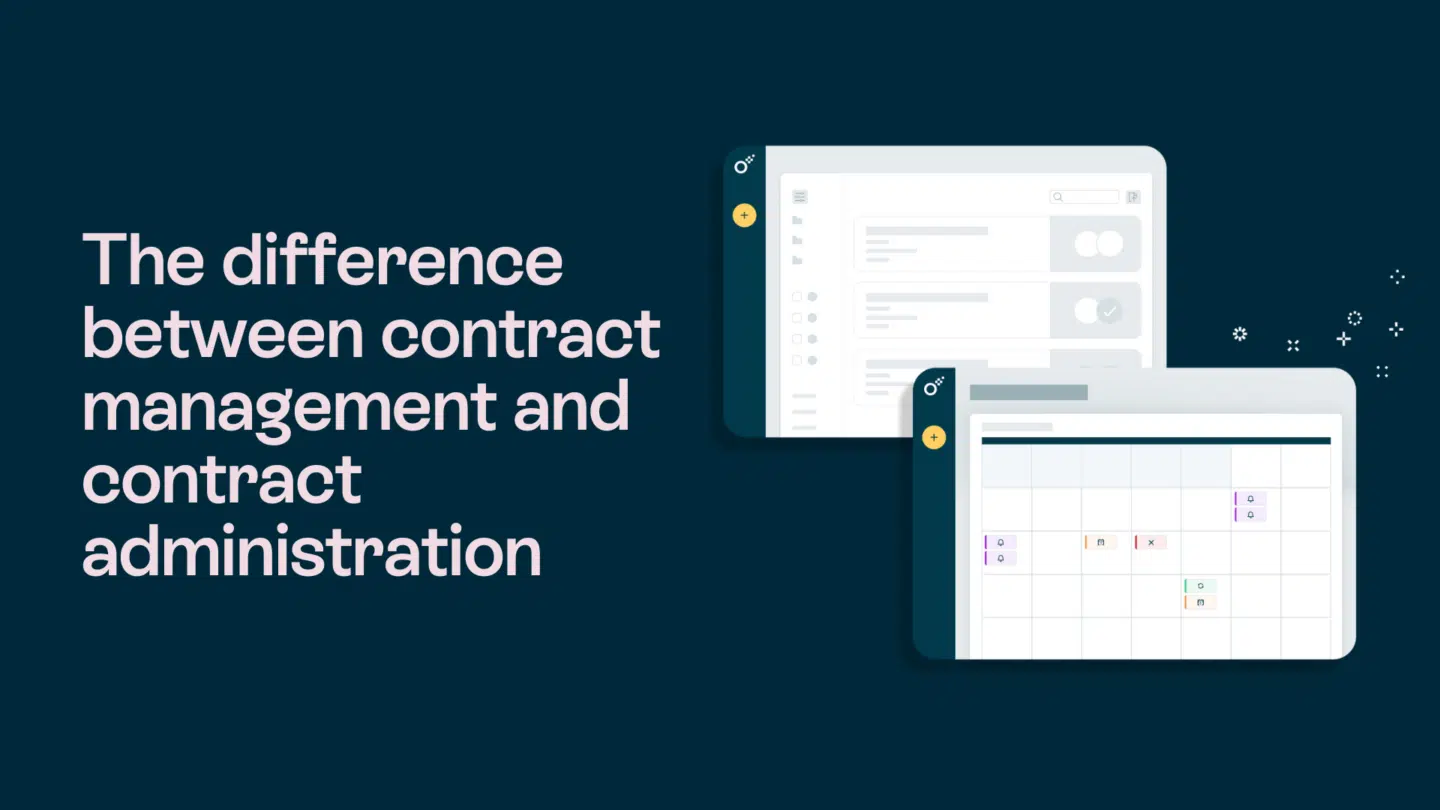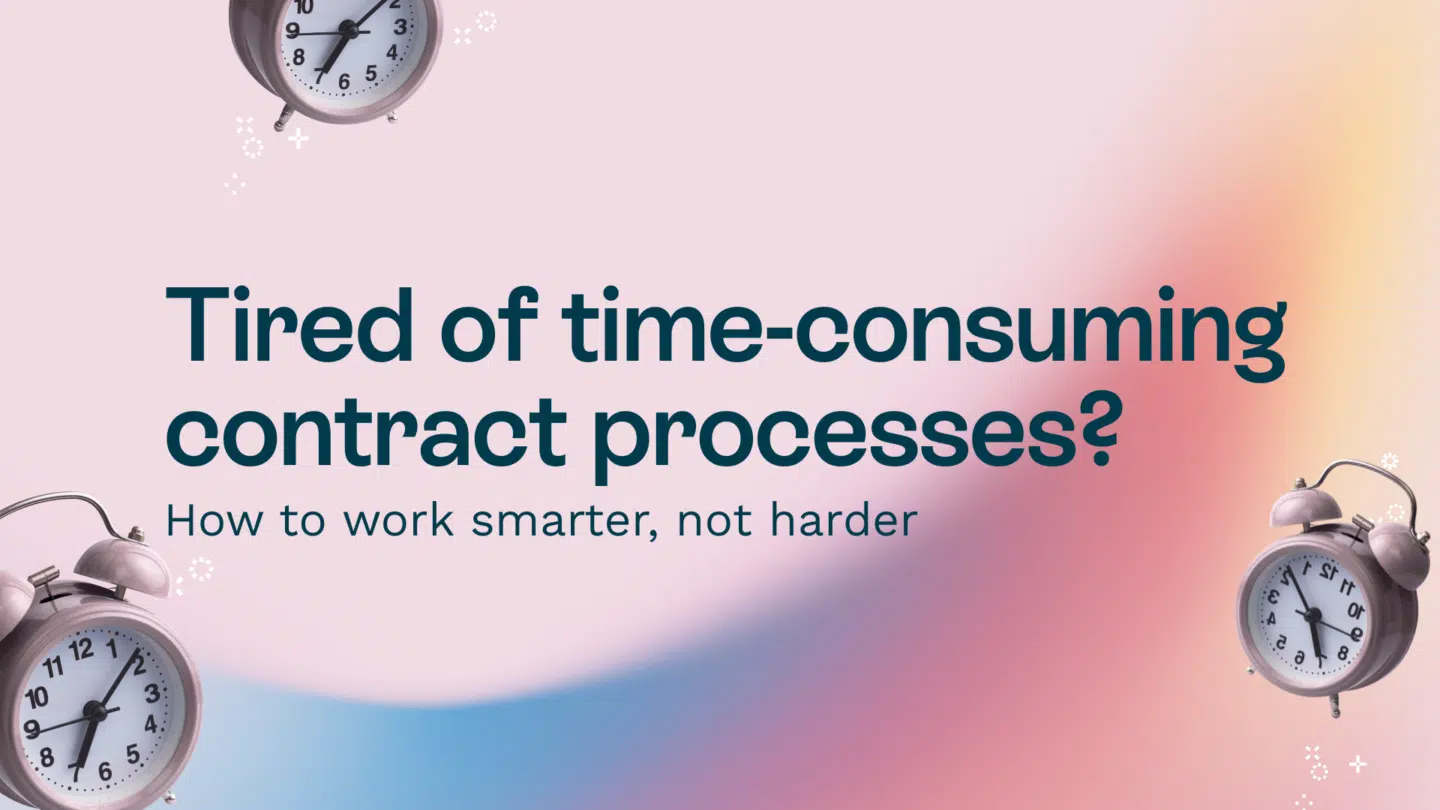In today’s fast-paced and ever-tricky business landscape, your processes need to be as fast and efficient as possible. The traditional pen-and-paper contracts have been replaced by digital contracts for HR, and for a good reason. Digital contracts offer a ton of benefits for HR departments.
In this article, we will explore why digital contracts for HR departments are necessary, and how they can streamline your HR processes.
We’ll cover:
- Improved efficiency
- Easy access and storage
- Improved accuracy and security
- Faster onboarding
- Improved compliance
- A better employee experience
The advantages of digital contracts for HR
1. Improved efficiency
One of the most significant advantages of using digital contracts in HR is the improved efficiency they offer. With digital contracts, HR departments can create, sign, and store contracts in a matter of minutes, compared to the days or even weeks it can take with traditional contracts. Digital contracts eliminate the need for printing, scanning, and mailing, which can save your HR team a significant amount of time and resources.
In addition to this, digital contracts can be created with pre-filled data, reducing the time and effort needed to fill in the contract’s fields manually. This feature is particularly useful in the case of contract renewals, where most of the information remains the same, and only a few fields need to be updated. By leveraging the pre-filled data feature, HR teams can save time and focus on other tasks that require more attention.
Read also: The key benefits of contract labor management§
2. Easy access and storage
Another benefit of digital contracts is easy access and storage. With traditional contracts, HR departments had to store them in filing cabinets or boxes, which can take up valuable office space. Besides, finding a specific contract among hundreds of others can be a daunting task, leading to wasted time and frustration.
Digital contracts, on the other hand, can be stored in the cloud, making them easily accessible to authorized personnel from anywhere in the world. All it takes is an internet connection and the proper credentials to access the contract library. Moreover, digital contracts can be indexed and tagged with specific keywords, making it easier to find the right document promptly. This means that your HR team can access and manage contracts from their laptops or mobile devices, which is particularly useful for remote teams.
3. Improved accuracy and security
Digital contracts offer improved accuracy and security. With traditional contracts, there is always the risk of errors due to human error or misplacement. Misplacing or losing a contract can lead to serious consequences, such as legal disputes, wasted time, and damage to the company’s reputation. Digital contracts eliminate these risks by providing a reliable and secure system for creating, sharing, and storing contracts.
Digital contracts use encryption and security measures to ensure that the information contained within them is secure and confidential. Moreover, digital contracts can be set up with approval workflows, ensuring that only authorized personnel can access and sign the document. This feature reduces the risk of unauthorized access and ensures that the contract is signed by the right people at the right time.
Read also: HR Tech: People, technology and digital transformation

How digital contracts for HR streamline processes
1. Faster onboarding
Onboarding new employees can be a long and tedious process, but with digital contracts, it can be streamlined. HR departments can send digital contracts to new employees before their start date, allowing them to review and sign contracts remotely. This means that new employees can sign contracts before their first day, eliminating the need for them to spend time filling out paperwork on their first day. This can also help to reduce the time it takes to onboard new employees, which can save your HR team valuable resources.
Digital contracts can also be customized to fit the specific needs of each employee, ensuring that the contract contains all the necessary information and clauses tailored to their role and responsibilities. This feature reduces the risk of errors and ensures that the employee understands the terms and conditions of their contract.
Read also: Why HR is your secret weapon for a digital transformation?
2. Improved compliance
Another way that digital contracts for HR can streamline processes is by improving compliance. With digital contracts, HR departments can ensure that all contracts are up-to-date and compliant with the latest regulations. This can help to reduce the risk of legal issues and ensure that your organization is meeting its legal obligations.
Digital contracts can also be set up with automatic reminders for contract renewals, ensuring that HR teams are always up-to-date with the latest regulations and deadlines. Moreover, digital contracts can be tracked and audited, providing a complete history of all the changes made to the document and who made them. This feature ensures transparency and accountability and helps to avoid legal disputes.
3. A better employee experience
Digital contracts for HR can also enhance the employee experience. With digital contracts, employees can sign contracts remotely, which can save them time and hassle. This can help to create a positive impression of your organization and improve employee satisfaction.
Moreover, digital contracts can be signed using electronic signatures, eliminating the need for physical signatures and the hassle of printing and scanning documents. Electronic signatures are legally binding and have the same legal value as traditional signatures, making them a reliable and secure way of signing contracts.
Read also: People. The most important part of your organization
The key takeaways
Digital contracts are becoming increasingly popular in the business world, and for a good reason. They offer a host of benefits, particularly for HR departments. Digital contracts can improve efficiency, provide easy access and storage, and enhance accuracy and security. They can also streamline HR processes, including onboarding, compliance, and employee experience. Therefore, it’s essential for HR departments to embrace digital contracts to streamline their processes and stay ahead of the competition.
In conclusion, digital contracts in HR are necessary for any organization that wants to stay competitive, improve efficiency, and create a positive employee experience. By embracing digital contracts, your HR team can save time and resources, improve compliance, and enhance accuracy and security. So, what are you waiting for? It’s time to make the switch to digital contracts in HR.








